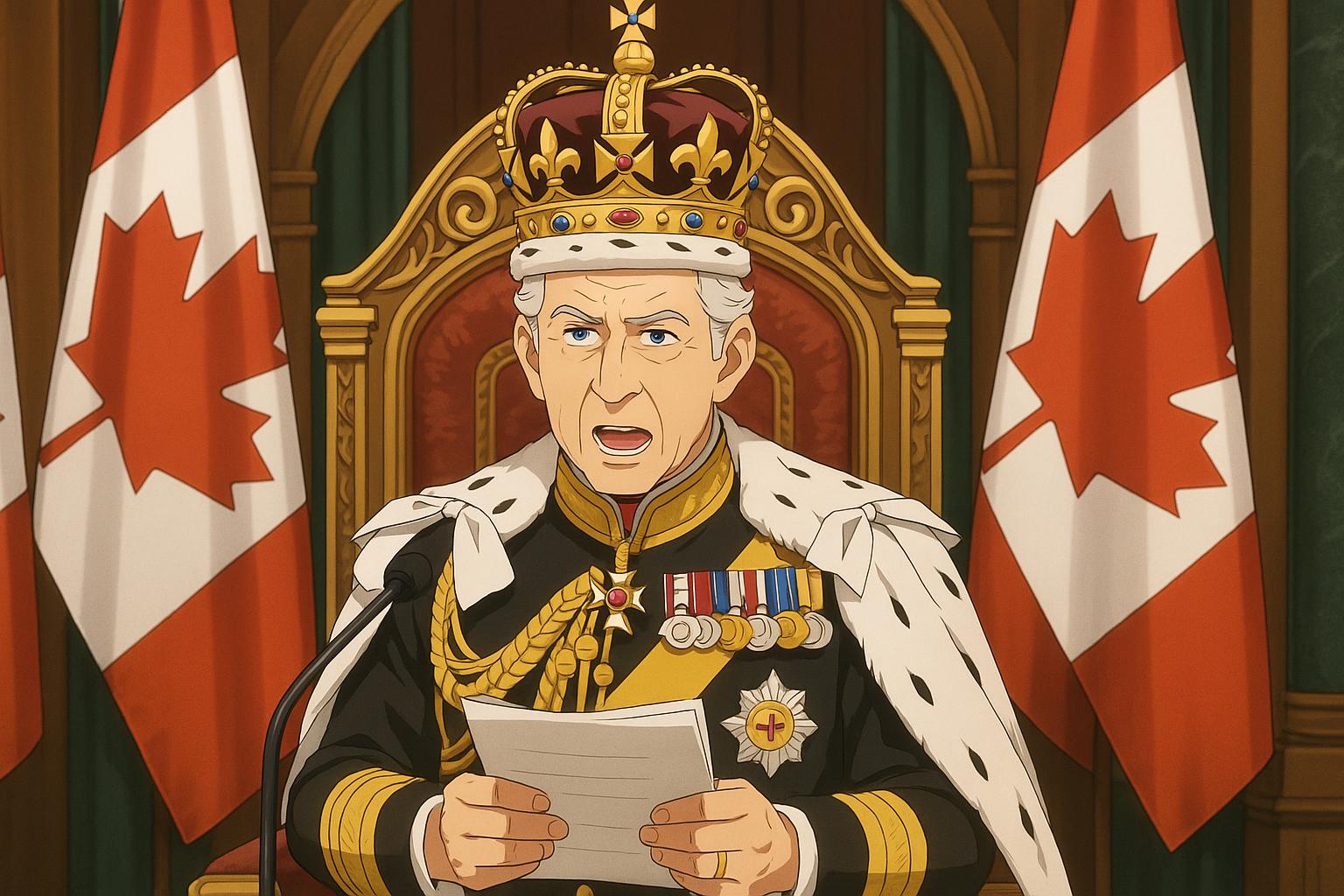In a recent display of political theatre, Donald Trump reignited his long-standing campaign for Canada to be absorbed as the 51st state of the United States, making his demands known through a post on Truth Social. His comments arrived just hours after King Charles III's symbolic opening of the Canadian Parliament, an event hailed as a reaffirmation of Canadian sovereignty. Trump stated, “I told Canada, which very much wants to be part of our fabulous Golden Dome System, that it will cost $61 Billion Dollars if they remain a separate, but unequal, Nation, but will cost ZERO DOLLARS if they become our cherished 51st State. They are considering the offer!” This brash enticement cleverly juxtaposed against the backdrop of a royal engagement aimed at underscoring Canada's independence.
King Charles's visit was not merely ceremonial. It featured a grand procession through Ottawa and a heartfelt address reflecting the sentiments of a nation rich in history and identity. In his speech, King Charles touched on pivotal values such as democracy and self-determination, emphasising that “democracy, pluralism, the rule of law, self-determination, and freedom are values which Canadians hold dear.” His words resonated deeply in a nation increasingly wary of external pressures, particularly from southern neighbours. By quoting the Canadian national anthem, he encapsulated a moment of national pride that starkly contrasted with Trump’s provocative commentary.
Historically, Trump's overtures towards Canada have often sparked controversy and ignited discussions surrounding Canadian nationalism. Following his earlier suggestions of annexation and tariffs, many Canadians reacted with a surge of patriotism, viewing Trump’s remarks not as genuine offers but as threats to their autonomy. Prime Minister Justin Trudeau has consistently dismissed such notions, previously labelling them as detrimental to bilateral relations and warning of retaliatory economic measures, such as tariffs on American imports. Trudeau’s commitment was visible during discussions with King Charles, where he likely raised concerns over sovereignty and the implications of Trump's persistent rhetoric.
Moreover, recent interactions between Trump and Canadian leaders have been marked by tension. In past meetings, Trudeau has pushed back against the notion of Canadian statehood, reiterating Canada’s independent economic status and the significant role it plays in U.S. energy consumption. Experts have suggested that Trump's proposals may serve more as negotiation tactics to secure advantages in trade discussions rather than genuine intentions of incorporation. Nevertheless, their effect has been politically potent, galvanising Canadian unity in the face of perceived external threats.
As Canada endeavours to assert its independence amid increasing U.S. pressures, the dichotomy between Trump’s alarming proposals and the King’s royal affirmations highlights the delicate interplay of power and national identity in North America. King Charles, with his symbolic influence, remains a figure of continuity and reassurance for Canadians, though his public engagements are constrained by constitutional limits. His role as a constitutional monarch requires a careful balance, ensuring that he supports Canadian integrity while remaining politically neutral.
The unfolding narrative reflects a deep-rooted tension that highlights not just political ambitions but the intrinsic values and identities that shape the relationship between Canada and the United States. As Canadians navigate these shared histories and futures, the recurring themes of sovereignty and national pride continue to echo through the corridors of power.
Reference Map:
- Paragraph 1 – [1], [4]
- Paragraph 2 – [1], [6]
- Paragraph 3 – [2], [3], [5]
- Paragraph 4 – [2], [7]
- Paragraph 5 – [1], [6]
Source: Noah Wire Services
